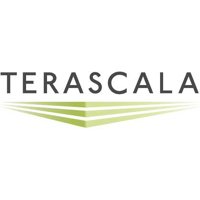 Today Teracala announced that San Diego State University is using a Terascala-powered HPC storage solution to study the DNA of viruses and bacteria (with the end goal of using them to fight disease.) Using the HPC solution, researchers have created a new computational tool that has allowed them to identify a never-before-seen bacteriophage present in three quarters of the world population.
Today Teracala announced that San Diego State University is using a Terascala-powered HPC storage solution to study the DNA of viruses and bacteria (with the end goal of using them to fight disease.) Using the HPC solution, researchers have created a new computational tool that has allowed them to identify a never-before-seen bacteriophage present in three quarters of the world population.
SDSU researchers are contributing to the Human Microbiome Project, where the National Institutes of Health collects viral and bacterial samples from healthy people and sequences the DNA. SDSU researchers then investigate to find meaning in the DNA sequences of the viruses and bacteria. Purpose-built computational tools are used to identify patterns in the DNA strings, as well as classify the unknown sequences. These tools also check if these DNA sequences are found in other organisms or people, and what contributing factors may have significance, including geography and environment.
In addition to the human microbiome, SDSU researchers collect samples of microorganisms from a variety of environments including coral reefs, fields, soil, and even the kelp forests of San Diego. Using these samples, researchers are trying to understand how widespread microbes are in populations, their diversity, how they function, and their purpose. Innovative techniques developed at SDSU resulted in the discovery of a new virus that infects bacteria in a person’s intestinal tract. Astonishingly, this virus is present in approximately three quarters of the world’s population.
The biological sciences are really becoming data driven and require large amounts of compute and high performance storage,” explained Rob Edwards, professor of computer science at San Diego State University. “We couldn’t explore new ways of thinking about biological data, human health, disease, and our environment without large computational resources. Our bioinformatics research is using Big Data to answer biological interesting questions that may improve our quality of life.”



